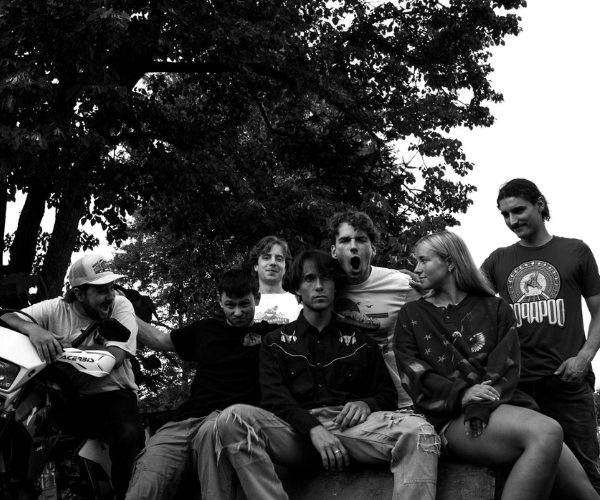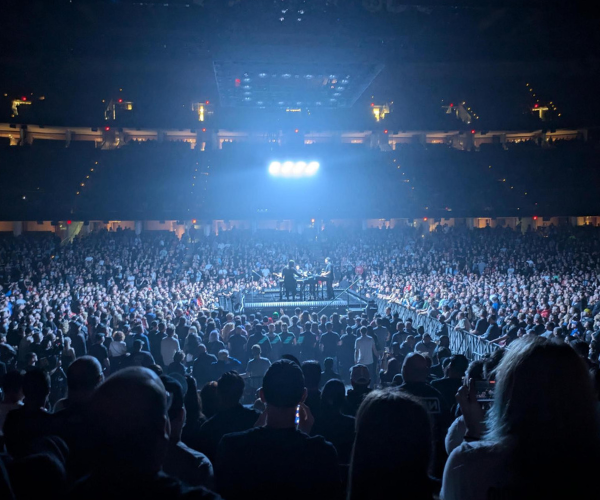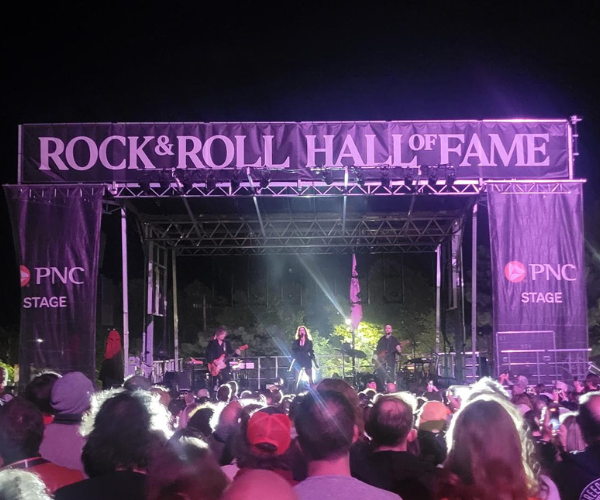The intersection of arts and politics has been debated greatly in relation to federal funding as of late. Why do you think that many Americans are in favor of cutting federal funding for the arts?
Over the last couple of years, I've learned that every revolution starts with the arts. It starts with the music. It starts with the literature. It starts with the sculpture and poetry. The arts are so powerful because it educates people in a way that politics and religion can't. I always say that the arts are more powerful than politics and religion combined because it's about the people, for the people and from the people. It's coming from that secret place in the mind that is nothing but truth, knowledge, wisdom, understanding. Creativity breeds innovation; innovation breeds evolution. So I guess, I don't think it's a conspiracy or anything, but maybe they spend money on all this other stuff and spend so little on education and the arts because they're afraid.
At the same time, most Americans love movies and music. Entertainment is arguably our best export to the world. Why can't they see the connection?
I do lectures at colleges on hip-hop, but I go into the high schools and middle schools.I'm there as a hip-hop artist, but the teachers bring me in to encourage the kids about education. They look at me at 46 years old, and they don't know for sure, because they look at me and say, "Oh that's my older brother's music or my father's music or even my grandfather's music." I stand in front of these kids and said, "Hey, when we did hip-hop ... at 16 years old, when I would write a rap, I wasn't writing a rap just to impress my 16-year-old friends that I could spit a verse." ... The reason why the real hip-hop of purpose does what it does is because we were young people, and when the older people — the journalists and the educators and the preachers and the teachers and law makers — would listen to that old-school hip-hop, we was rapping economics, history, education. We were sharing ideas; we was informing each other. We were teaching others.
They look at me now [and say], "With all due respect, Mr. D.M.C., you're just saying that because you're wiser; you've experienced a lot, and you're more intelligent." I say, "Yes, you're right young brother or sister, but everything I'm saying at 46, I've been saying since I was 12."
I don't know where it gets lost. These politicians, policymakers and lawmakers, they don't understand the valuable tool [art is], whether it's rock music, punk rock, hip-hop, those graffiti writers, whether it's a painter, a sculptor, somebody trying to make a movie, these poets, these spoken-word artists. These are valuable, valuable mediums to change education [and] better society. When they don't put the resources into it, when we take it upon ourselves to do it [and] get millions of people following us, they get scared of us and start calling us rebels and troublemakers.
Obviously Grandmaster Flash was a huge influence on you and your being a pioneer of the hip-hop movement. Who are some other artists who have shaped you that may surprise people?
So while all my friends in my neighborhood were grooving on "Say It Loud — I'm Black and I'm Proud," I was listening to John Lennon, John Fogerty and Bob Dylan. These guys were talking about the Vietnam War, Civil Rights, Women's Lib. ... So growing up, the thing that allowed me to be able to come and use this artistic foundation that Afrika Bambaataa and Flash gave me was actually the rock stars, because they sang about the issues. Everything they talked about was the society and the world I was living in.
The Creative Voices Summit featuring Darryl McDaniels, former New York Times classical music critic Tim Page, and former chairman of the National Endowment for the Arts John Frohnnmayer will take place at the Idea Center at PlayhouseSquare, 1375 Euclid Ave., at 9:30 a.m. An Arts Education luncheon, hosted by actress Rosie Perez on the State Theatre stage, will follow at noon. The morning event is free and open to the public. Cost for the luncheon is $25. Online or phone registration is required for both events at csuohio.edu.cai or by calling 216-687-5018.



